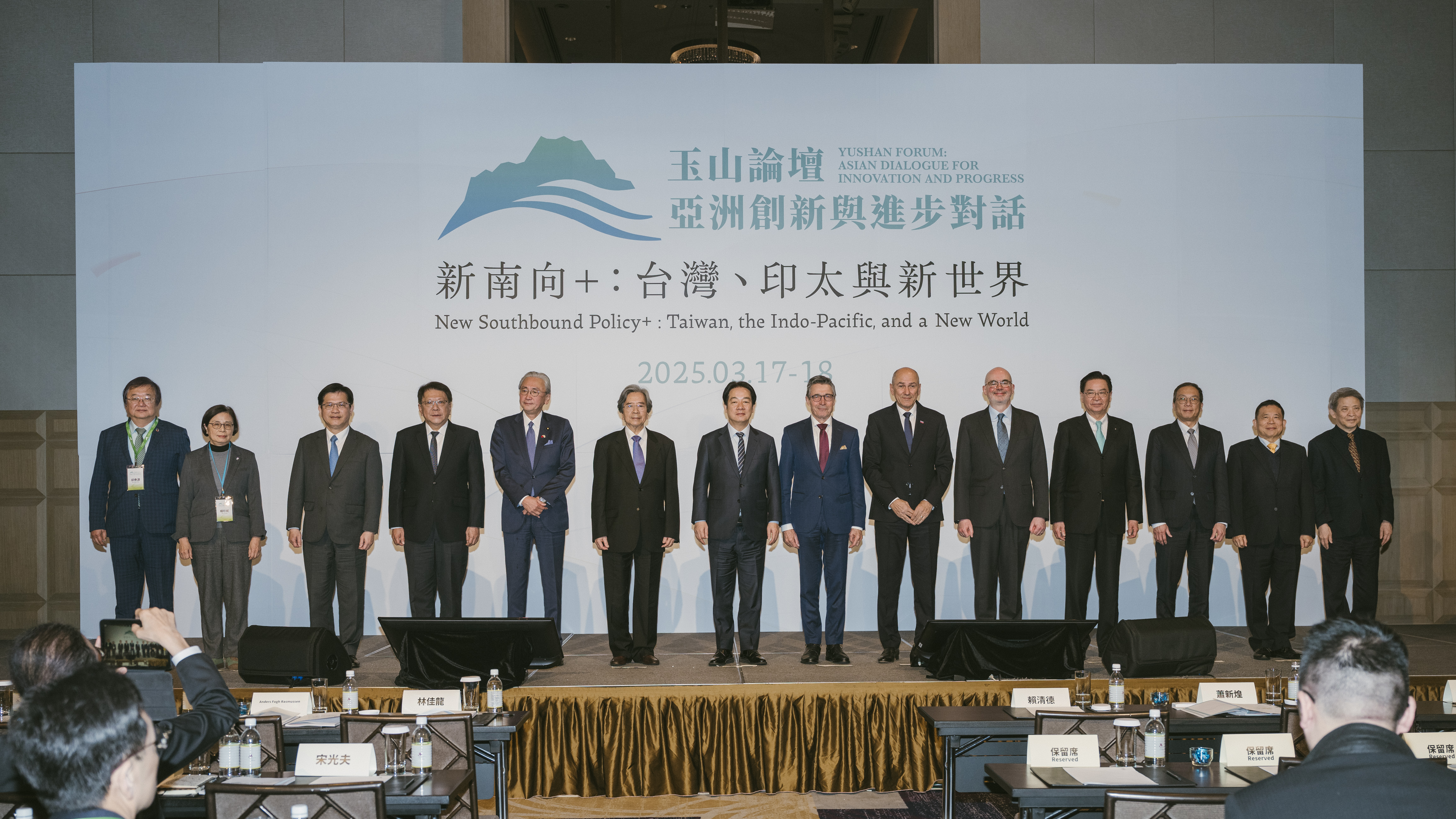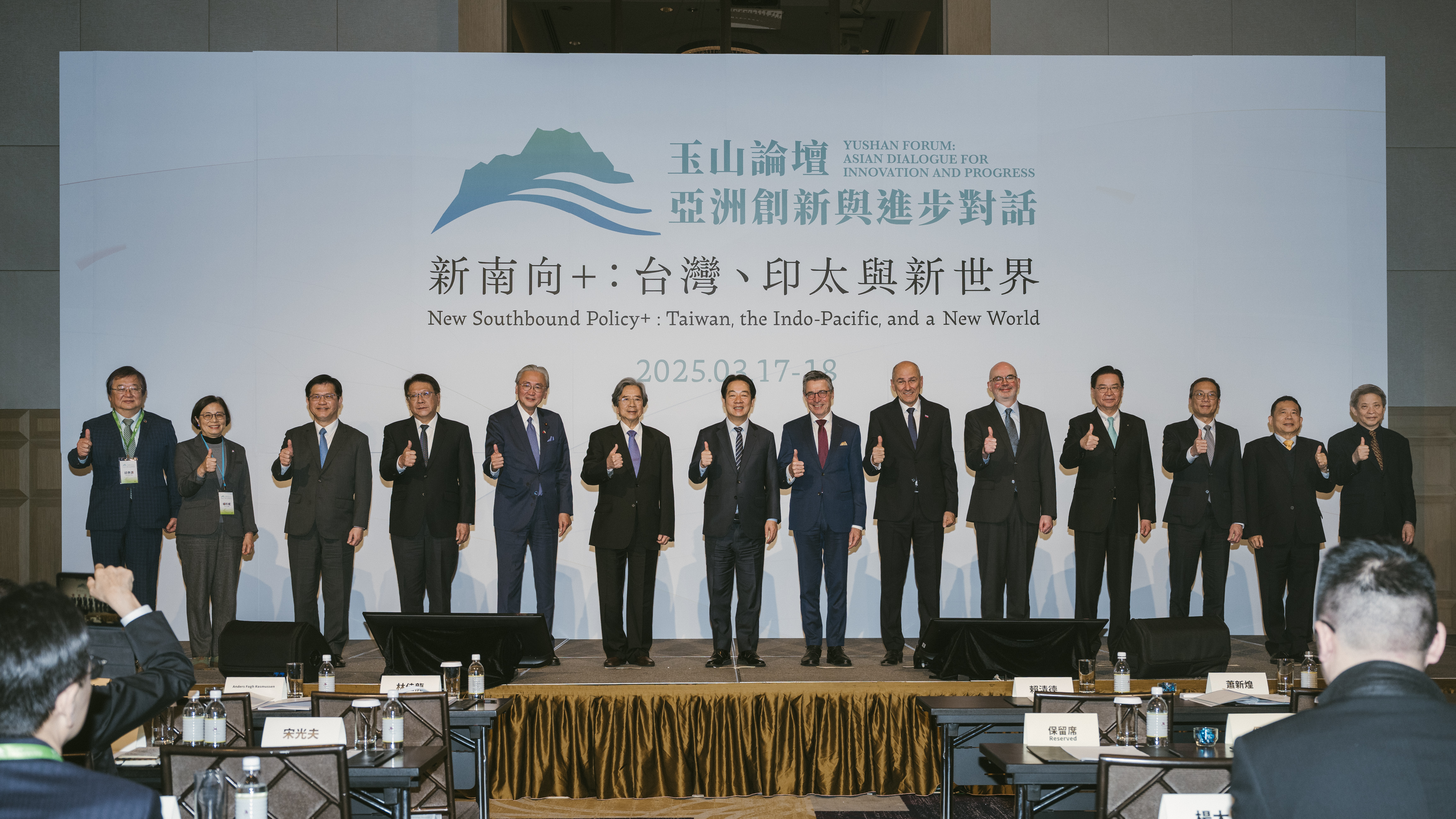
The 8th Yushan Forum, taking place between March 17 to March 18, returns under the theme “New Southbound Policy+: Taiwan, the Indo-Pacific, and a New World.” Co-organized by the Taiwan-Asia Exchange Foundation (TAEF) and the Ministry of Foreign Affairs (MOFA), this year’s forum introduces the New Southbound Policy+ (NSP+), reaffirming Taiwan’s leadership in values-based diplomacy, economic and trade diplomacy, and technological diplomacy under President Lai Ching-te’s administration. The first day kicks off with remarks from key speakers, including President Lai Ching-te, Vice President Hsiao Bi-khim, TAEF Chairman Hsin-Huang Michael Hsiao, Minister of Foreign Affairs Lin Chia-lung, and esteemed international figures such as Anders Fogh Rasmussen, Janez Janša, Keiji Furuya, and Raymond F. Greene.
Hsin-Huang Michael Hsiao, Chairman of TAEF, opened the forum by expressing that Taiwan continues to demonstrate its commitment to “democracy, freedom, high-end technology, and social innovation, fostering strong partnerships with like-minded allies.” This year marks a significant milestone as Taiwan hosts the Canada-Taiwan Indo-Pacific Security Forum for the first time, bringing together leading think tank experts to address regional security challenges. Additionally, the International Strategy Forum (ISF) Global Summit convened in Taipei, gathering renowned scholars and civil society leaders to explore innovative solutions for a better world. As Taiwan’s premier platform for the expanded New Southbound Policy Plus (NSP+), TAEF plays a key role in its implementation. Dr. Hsiao also outlined the “six corridors” as part of collaborative efforts to implement the policy, including the governmental digital technology and semiconductor corridor, the health corridor, the resilience corridor, and three corridors driven by the civilian sector: the think tank corridor, the NGO corridor, and the youth corridor.
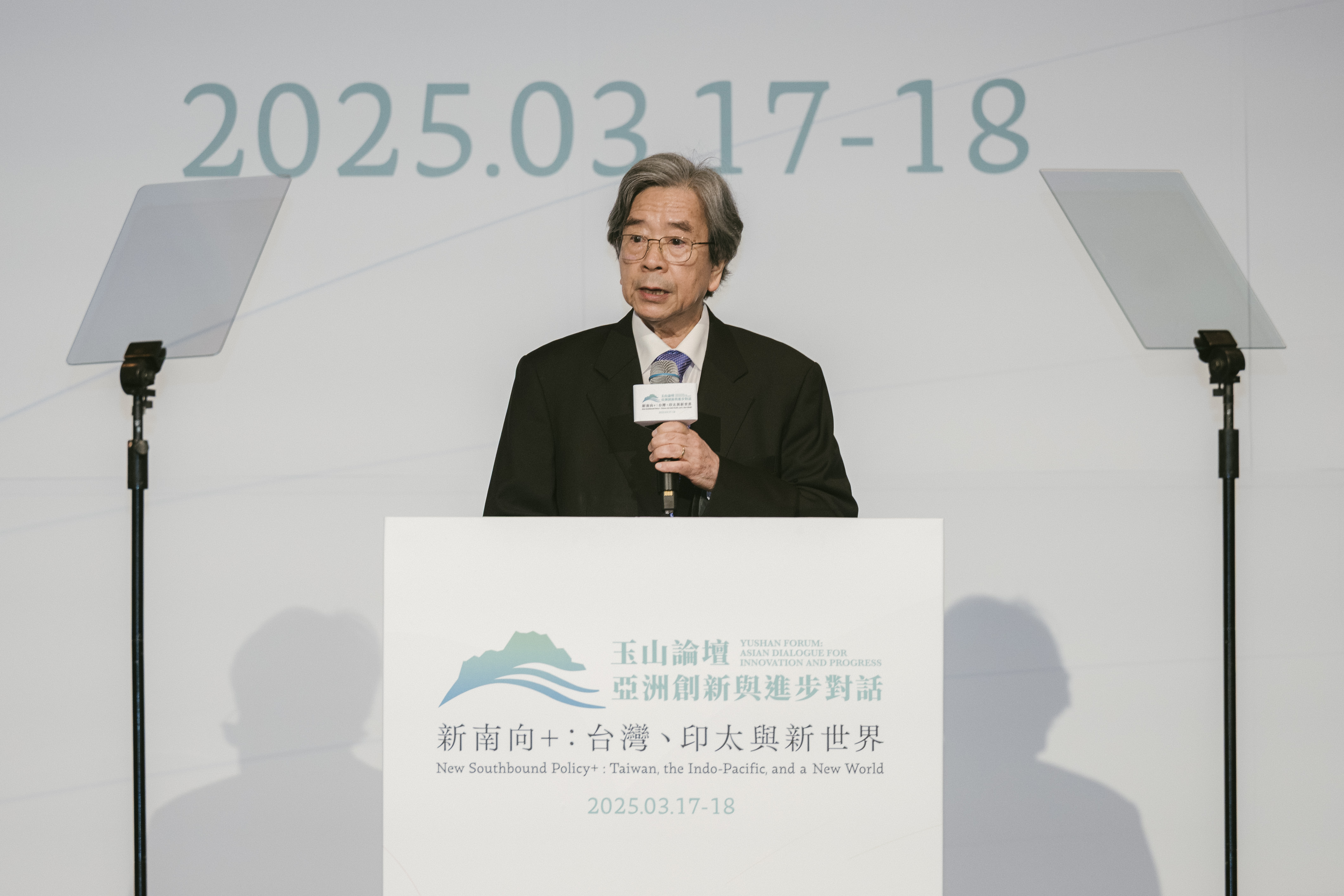
Lai Ching-te, President of the R.O.C (Taiwan), stated that Yushan is more than just a platform—it deepens “Taiwan’s connection with the world“ through the NSP framework. President Lai emphasized converting the legacy of past achievements into “action plans,” forging ahead with concrete steps. President Lai highlighted Taiwan’s plans to become “a never-setting economic powerhouse” by embracing smart technology and strengthening semiconductor resilience. This approach reinforces “democratic supply chains” and solidifies Taiwan’s role as a “Silicon Island for semiconductors” while driving innovation across industries. Taiwan also aspires to be an “AI island” in fields such as quantum technology and medicine, backed by a government committed to fostering innovation and advancing the net-zero transition. President Lai reaffirmed Taiwan’s commitment to an “inclusive, resilient, and prosperous Indo-Pacific” and stressed that Taiwan stands with democratic partners to strengthen solidarity against authoritarian threats. “Taiwan will continue to engage with the world, and we welcome the world to come closer to Taiwan,” President Lai says. He also noted that Yushan, as known as the Jade Mountain, embodies an “unwavering spirit during this critical time of transformation”. Taiwan remains a hub for cooperation, driving greater regional stability and global prosperity.
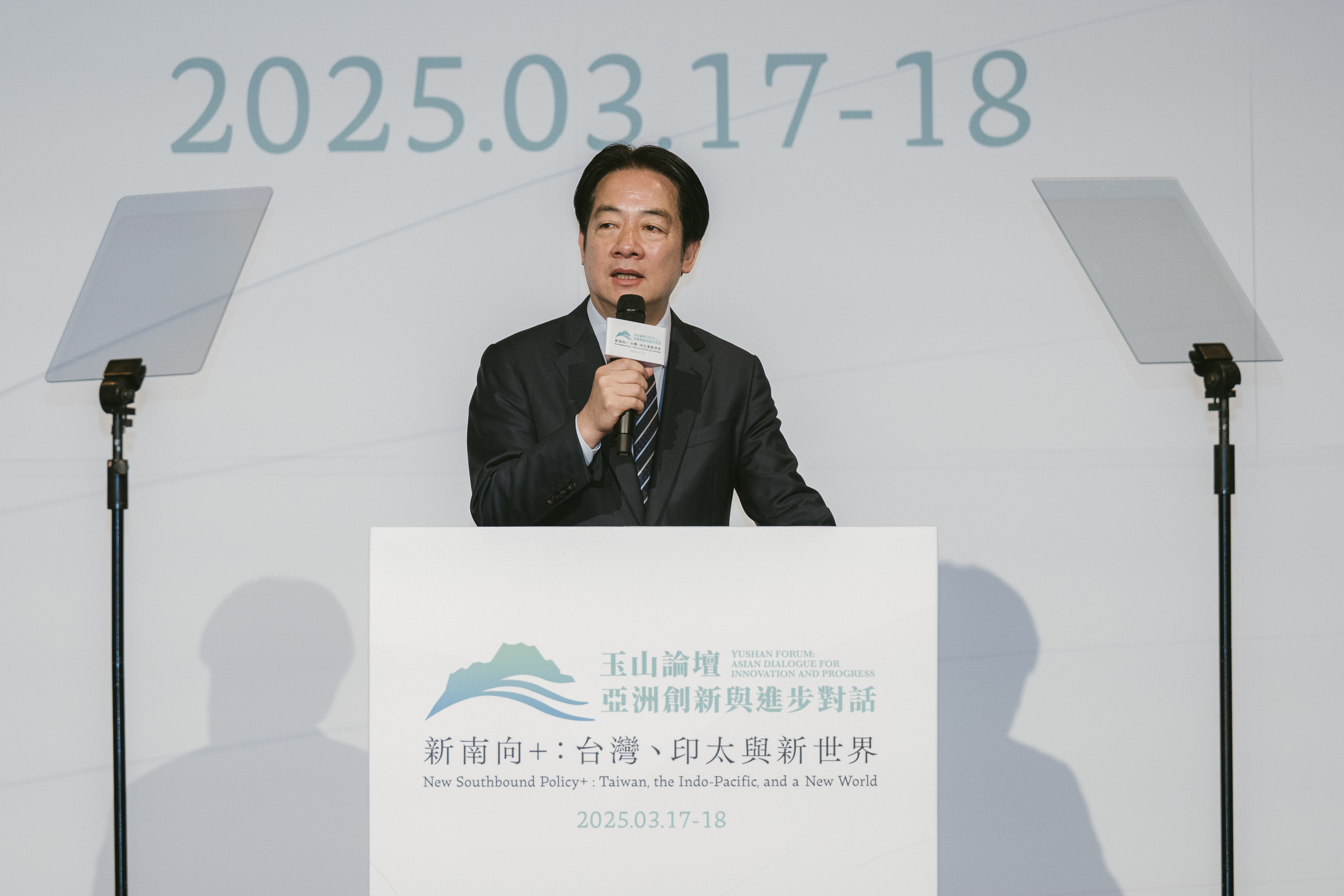
Anders Fogh Rasmussen, Former Prime Minister of Denmark and Chairman of the Alliance of Democracies Foundation, recalled having first visited Taiwan in 1994 as a young member of the Danish Parliament, and highlighted Taiwan’s remarkable transformation into a “beacon of liberty, a testament of how people thrive in freedom.” Speaking against the backdrop of shifting global political forces, he emphasized the importance of Indo-Pacific partners discussing the future of this region and reaffirmed Europe’s enduring commitment to Taiwan. While Europe has traditionally looked to the United States as a trustworthy partner, he acknowledged the need for European autonomy under the Trump administration. Though transatlantic ties remain strong, he warned that “President Xi is watching Ukraine, and we must not send signals by our collective weakness that aggression pays off for dictators.” He also stressed the need for deeper economic and cultural ties beyond short-term interests, and urged continued cooperation based on “common values, a shared belief in democracy and prosperity,” reaffirming that “true friends need to stick together” and that “Taiwan belongs to the family of democracies.”
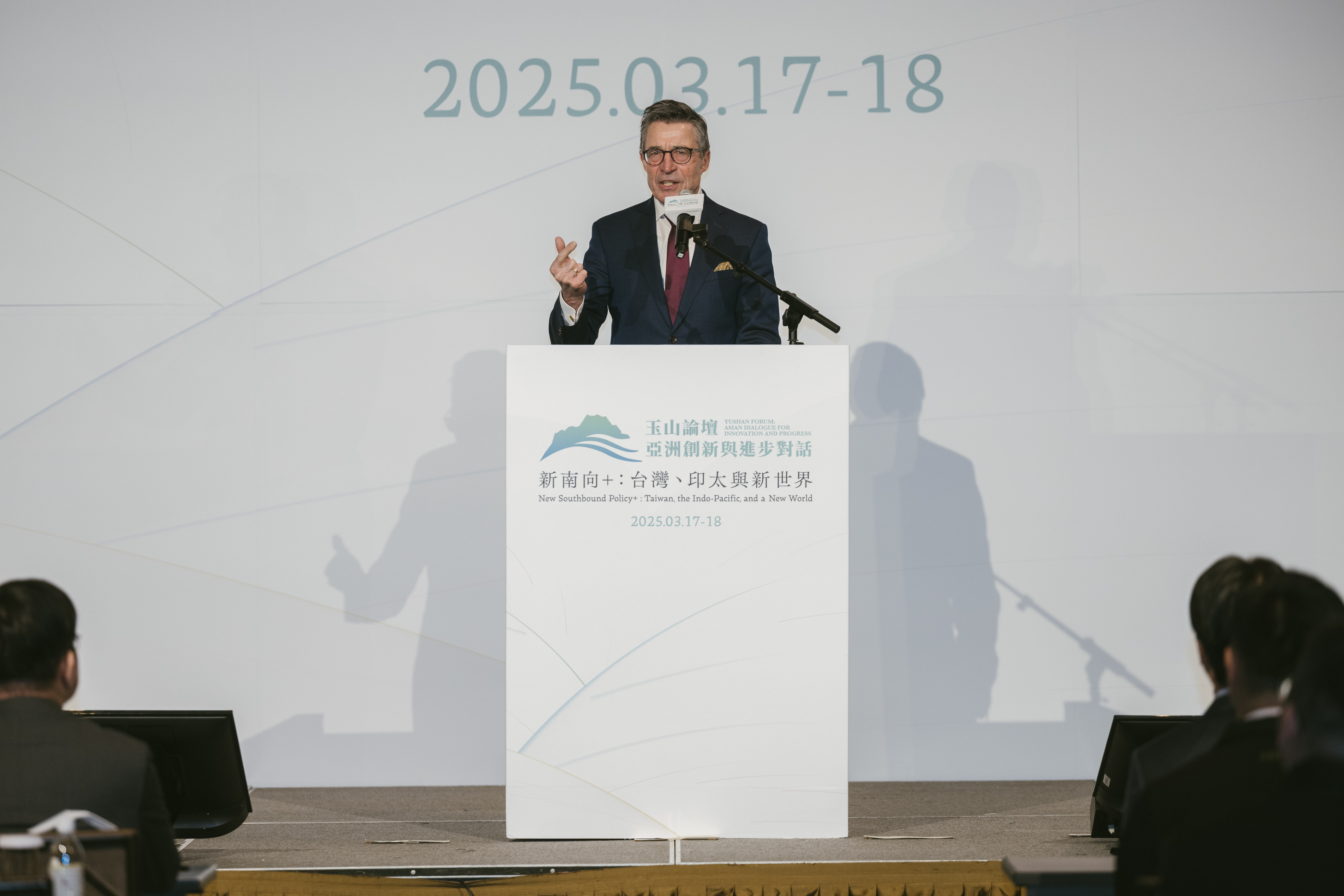
Janez Janša, Former Prime Minister and Former Minister of Defense of Slovenia, as well as Former President of the European Council, noted Slovenia’s 34 years of independence and 20 years as an EU and NATO member, reflecting on the country’s journey from political oppression to democracy and highlighting its shared history of struggle with Taiwan. He noted that over the past decade, the world has faced major challenges, including rapid technological advancements and the rising power of authoritarian regimes. As Europe grapples with the devastating war in Ukraine, which has displaced millions and demands full military attention from both Europe and the U.S., he emphasized that “Taiwan is increasingly becoming a crucial pillar of peace and stability, not only for the Indo-Pacific region but the entire world.” With its growing global influence in diplomacy, Taiwan plays a vital role in maintaining regional and global security. He urged democracies worldwide to unite in supporting Taiwan’s resilience and sovereignty, recognizing its importance in the fight for freedom and stability.
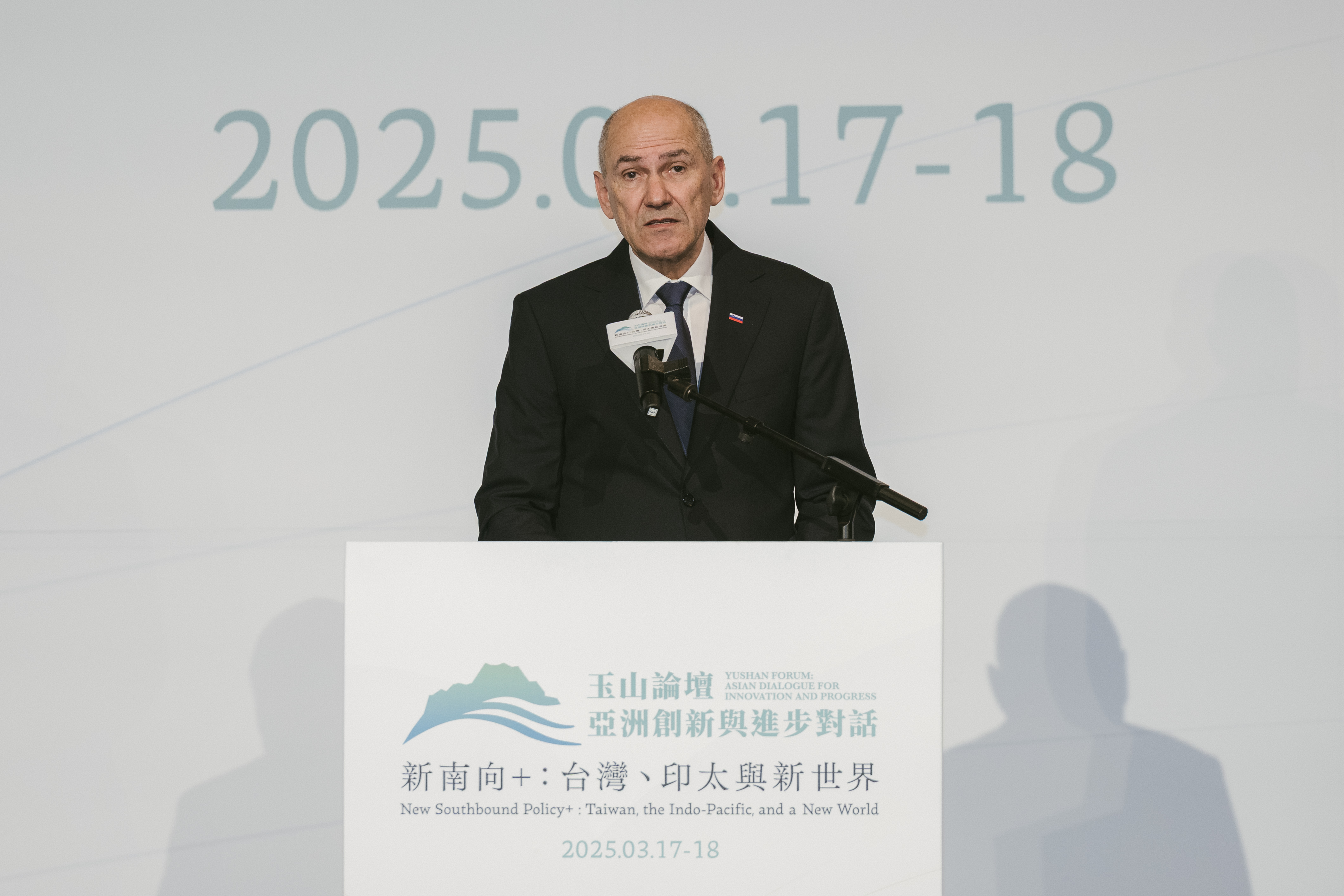
Keiji Furuya, Chairman of the Japan-ROC Diet Members’ Consultative Council and Member of the House of Representatives in Japan’s National Legislature, emphasized Marks his sixth year at the Yushan Forum and reaffirms Japan’s commitment to a free and open Indo-Pacific, recognizing Taiwan’s growing economic strength, investment, and strategic role in regional security and supply chain resilience. Despite the lack of official diplomatic ties, Taiwan and Japan maintain deep connections, and Japan continues to expand cooperation with Taiwan with a recent significant move in Japan’s Parliament further strengthening ties. With record-high people-to-people exchanges and ongoing joint parliamentary research on CPTPP and the Taiwan Relations Act,. As former Prime Minister Shinzo Abe stated, “Taiwan contingency is a Japan contingency,” underscoring the critical link between peace in the Taiwan Strait and Japan’s security and global supply chains. Japan is also taking proactive steps in national development and will continue to cooperate with Guided by President Lai’s three visions and a shared commitment to “democracy, rule of law, and regional stability,” in navigating an increasingly complex global landscape. Furuya concludes his speech with former president Tsai’s words, “To be Taiwanese is an honor and a pride,” a sentiment that continues to inspire Japan’s unwavering support.
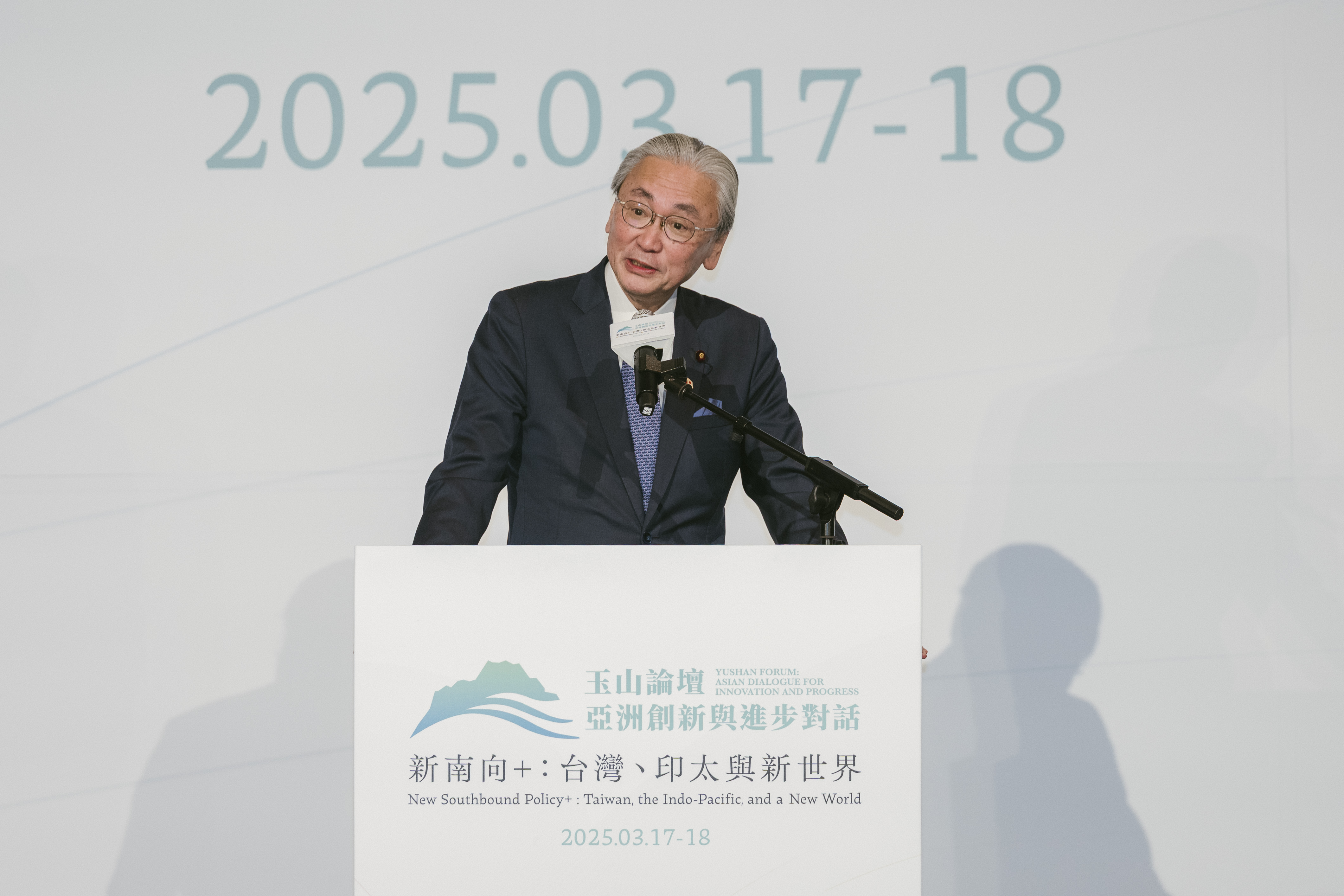
Raymond F. Greene, Director of the American Institute in Taiwan (AIT), concluded the opening ceremony by noting that the United States stands strong with its allies in the Indo-Pacific to advance shared interests and regional stability. President Trump has reaffirmed his commitment to global peace and security, emphasizing the importance of “peace and stability in the Taiwan Strait.” Highlighting Taiwan’s economic strength, Greene acknowledged that with Taiwan accounting for 10% of global GDP, its contributions play a crucial role in “re-industrializing the United States.” Taiwan remains a global leader, with TSMC’s investments and its Arizona expansion driving advancements in areas such as AI and robotics. The U.S. and its partners “reinforce opposition to unilateral changes to the status quo” as administered by the G7, while supporting Taiwan’s self-defense expansion. Under President Lai’s leadership, increased defense spending and initiatives to crack down on illicit operations will further enhance Taiwan’s security, in partnership with Central Europe and Guatemala. As Taiwan continues to shape a “stronger, safer, and more prosperous” future, the U.S. looks forward to collaborating on key recommendations to further strengthen global security and stability.
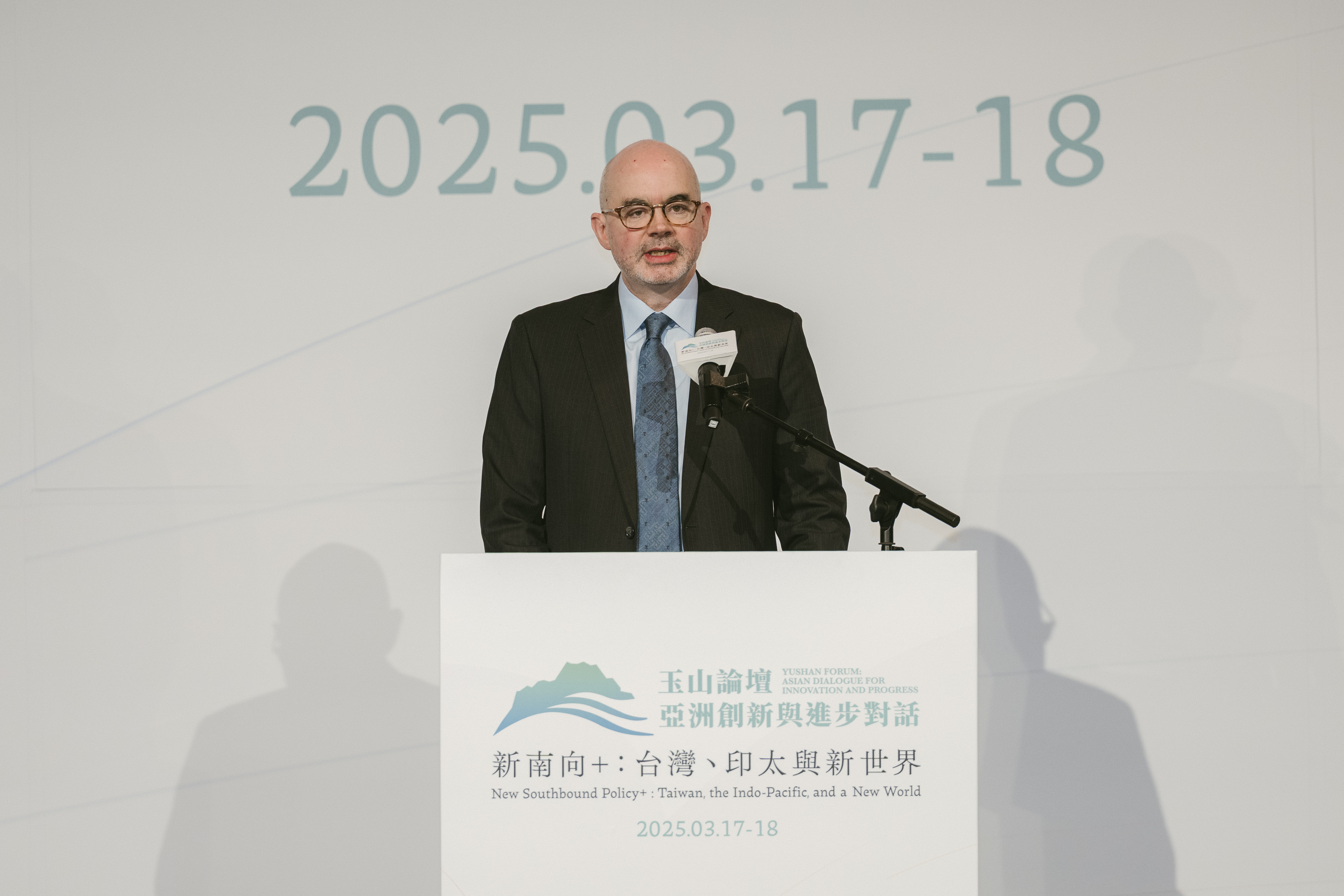
Pre-recording remarks were also given by Rep. Young Kim (R-CA), Chair of the Subcommittee on East Asia and the Pacific, House Foreign Affairs Committee; Rep. John Moolenaar (R-CA), Chairman of the House Select Committee on the Strategic Competition Between the United States and the Chinese Communist Party; and Rep. Raja Krishnamoorthi (D-IL), Ranking Member of the House Select Committee on the Strategic Competition Between the United States and the Chinese Communist Party
A high-level luncheon will be hosted by Vice President Hsiao Bi-khim, featuring a special remark from Anders Fogh Rasmussen. The evening will conclude with a diplomatic dinner hosted by Foreign Minister Lin Chia-lung, where Anna Fotyga, Former Foreign Minister of Poland, will deliver remarks, further strengthening international exchanges at the forum.
